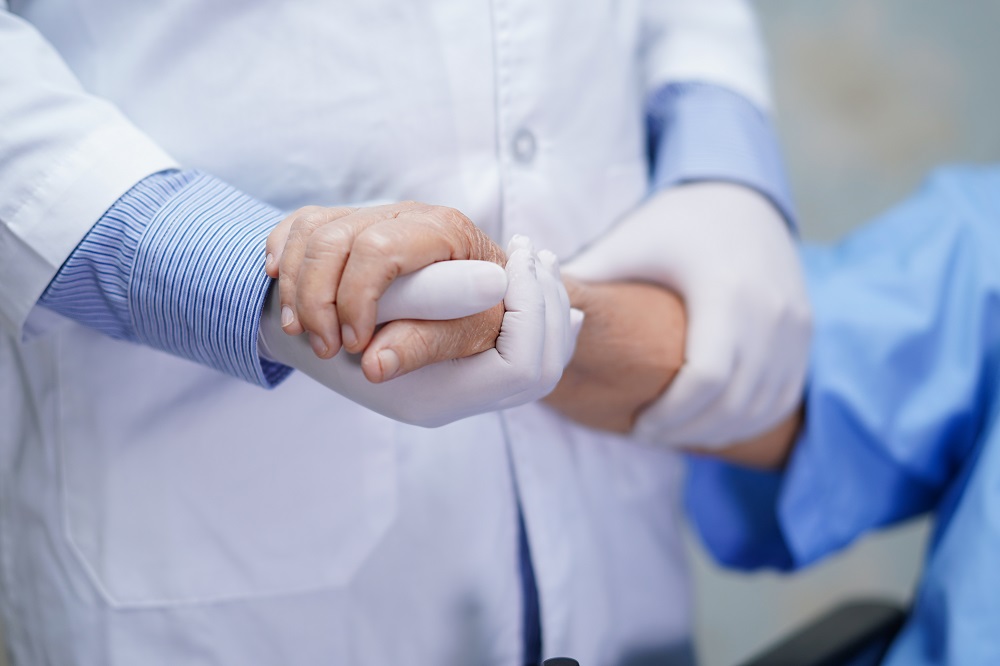Suzanne Lazaroo
21 April 2020: University of Canberra students and faculty have answered the call to support community healthcare and join Canberra Health Services, as it bolsters its ranks to deal with the COVID-19 health emergency.
With their peers from the Australian National University, Australian Catholic University and Canberra Institute of Technology, many have lodged expressions of interest to provide integral support in fighting the global viral outbreak by making sure that there will be enough healthcare staff available to meet potential demand.

Executive Dean of the Faculty of Health Professor Michelle Lincoln said that students and staff alike had responded enthusiastically, glad of the chance to play a direct role in helping to protect the community in such a time of need.
“Some of our highly-skilled health academic staff will be seconded to Canberra Health Services for a time,” she said.
These include Assistant Professor Rebekah Ogilvie, seconded to the role of Deputy Director of the Trauma Unit at The Canberra Hospital from mid-April, and Lecturer in Nursing Tim Keun, who will be serving at the Queanbeyan District Hospital as a nurse practitioner for this period.
Meanwhile, students are taking up multiple roles in the surge workforce, including moving into employment as Assistants in Nursing, Diagnostic Radiography, Pharmacy and Pathology, among others.
“Some students have also volunteered to help with the contact tracing of people with COVID-19,” Professor Lincoln added.
“We know that many students have been putting in extra hours at pharmacies across the community, even working as delivery drivers for community pharmacies,” said Dr Alison Shield, Discipline Lead in Pharmacy. “It has been a challenging time for them in the community, but they are stepping up and helping out where they can.”
“We know our colleagues at the coalface of patient care are under enormous pressure and if we are able to help, then we will,” said Professor Mark Naunton, Head of School for Health Sciences.
“Students will be taking on technical roles to relieve the pressure on pharmacists so they can focus on more clinical activities and patient-related care – pharmacists are currently among the first healthcare professionals patients talk to for medication-related issues, or for help with the relief of symptoms.
“This is a once-in-a-lifetime opportunity for students to contribute in a major health crisis, and is likely to shape their thinking about how future healthcare can be delivered,” Professor Naunton added.

Head of School of Nursing, Midwifery and Public Health Professor Karen Strickland said that the faculty was doing everything possible to limit the health risks to these students and health professionals.
“In this extraordinary time, a number of our student placements at health services throughout Canberra have been stopped to ‘flatten the curve’, especially those working with vulnerable groups,” she said. “This, in turn, has released students to join the surge workforce needed now.”
However, there are also a number of health students whose placements are still ongoing, and Professor Strickland said that it was important that they continue – especially in light of the fact that the healthcare system’s COVID-19 response is likely to be more of a marathon than a sprint.
“With the impact of the COVID-19 outbreak on the healthcare system expected to entail a sustained effort in a high stress environment for 20 to 30 weeks, it’s important that there are clinical students who can continue in their placements and then graduate in three or four months,” she said.
“In this way, there will be a fresh influx of nurses, midwives and allied health professionals to bolster and refresh the frontlines.”
It’s also important to have a measured and multi-faceted approach to approaching overall healthcare in this time, as there are many areas that require support, added Professor Strickland.
“Student nurses, in particular, have developed clinical skills and are familiar with health care settings, making them such an asset in these times,” she said. “Student nurses and midwives can continue to provide support and care to patients in many lower risk areas.”
A risk-based approach to student placement is needed at this time.
“For instance, education for ventilator skills is an advanced nursing practice that goes beyond working a piece of equipment, and while monitoring and assessing critically ill patients on ventilation is part of the curriculum, we would not expect students to be placed in these areas in the current climate. Our highly-skilled nursing colleagues in the system will undertake this work,” Professor Strickland said.

Meanwhile, the University will continue to provide in-demand allied health services to vulnerable members of the community via the UC Health Clinics.
“To fit contemporary need, services delivered via telehealth into people’s homes are now available,” Professor Lincoln said.
“While COVID-19 invades our community, other members of the community continue to need support to recover from cancer, live with Parkinson’s disease and cope with chronic pain.”
Professor Strickland sums it up: “We are in this together, and will continue to all work together to find solutions to support health services in Canberra and the community.”
Click here to make a telehealth appointment at the UC Health Clinics.


